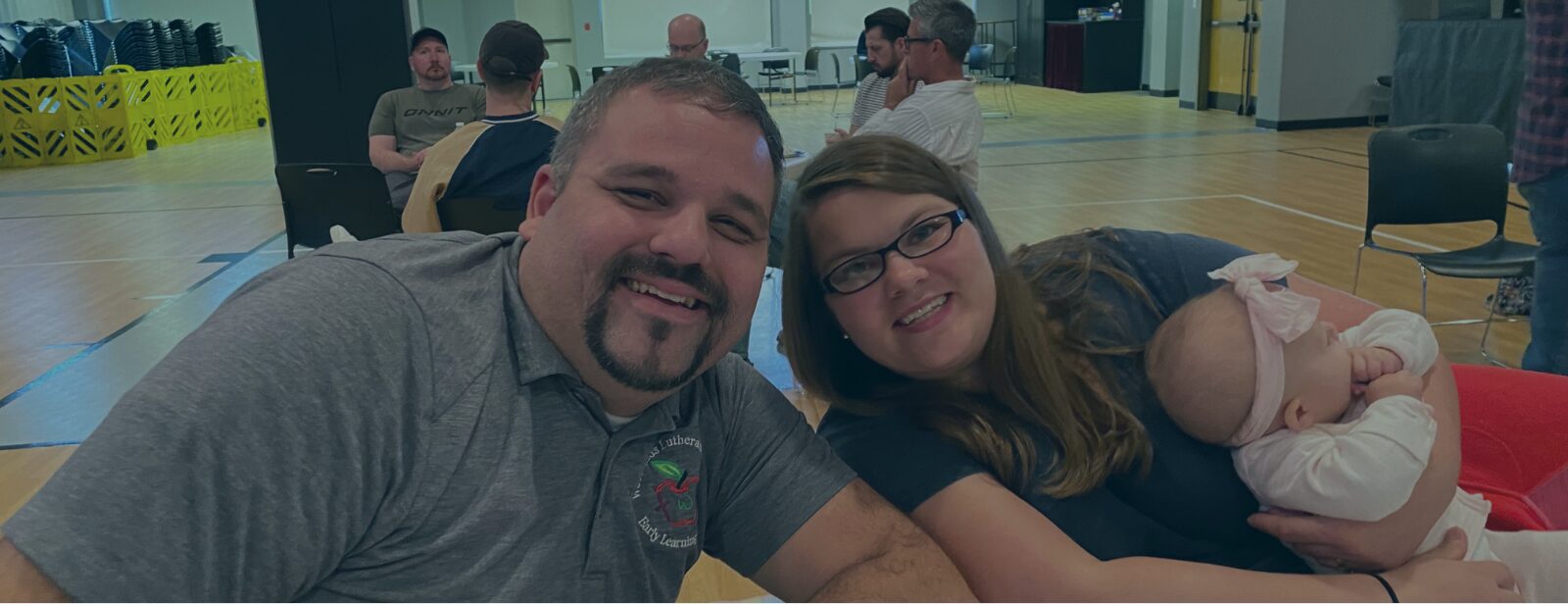Today I want to look at the formation of young pastors and spouses, after three weeks of looking at how two PLI pastors prepared for and finished well, the incredible insights from their spouses about the same adventure, and how to proactively “lead while leaving.” And of course, the four stages of retirement Ted Talk that shaped the 4 stages of retirement language we’ve been using.
Cheryl Gieseke was the Assistant Superintendent for Curriculum and Instruction for a large school district, and she is a champion for young pastors and their spouses—so much so that it almost makes me want to cry! She was looking for a partner to help bring the training she recognized newer pastors so desperately needed in today’s world. She found PLI. Cheryl has set up a donor-advised fund she calls the “Wind of the Spirit” fund to help make this all happen. I recently sat down with Cheryl and captured the story I’ll share here and in the next couple of weeks.
Cheryl, we started a conversation a few years ago. You love pastors. You want to see them grow and become lifelong learners, because churches don’t get very far without good leadership.
Cheryl: I’ve been aware of PLI since it started 25 years ago. I wanted to see if PLI’s training could really help pastors become better pastors and leaders. In education, new teachers know their content very well but are not so knowledgeable in educational areas. Research demonstrated that mentoring by your best teachers was the best way to help them grow. Not a “sit and get”/tell them model. I did some research and discovered that the same principle was transferable with pastors.
I remember inviting you to come to the start of Leadership Essentials in Chicago two years ago. It was our first bilingual learning community in the U.S. You met some of the team. And you had your notebook. You just quietly looked, listened, and made your way around the room.
Cheryl: I watch the QUALITY of the presentation. I watch HOW it’s being presented. But I learned a long time ago also to watch the PARTICIPANTS! Are they engaging? Are they learning?
PLI was impressive. Men and women quickly moved that first day from arriving in their own worlds, separate, to being relational and connected. They were engaged at a deep level.
The barriers broke down very quickly. I watched couples engage in the SWOT (Strengths, Weaknesses, Opportunities, Threats) analysis. What PLI does is the very best I’ve ever seen. I’ve done a lot of SWOT analyses. This is the very best. I’m taking what I learned and using it.
Cheryl, you initially targeted your desire to help just the pastors.
Cheryl: In education, we invested in training the practitioner. I truly didn’t understand why PLI invested in training the pastor and spouse together. What happened that first day of PLI changed everything. I knew what a pastor was all about. Over the years, I knew their spouses. I taught their kids. But I didn’t get how important the spouse dynamic is. They’re living it, breathing the ministry. Sometimes it’s watching the most important person in your life getting bruised. PLI is the only place I know that trains pastor and spouse together.
I found out at the end of your first day at PLI that you had a list of 15 or 20 goals and topics that you were looking to see if PLI addressed them and how well we did.
Cheryl: Twenty-three! I had 23! After my research and after talking to pastors five or six years into ministry about what they needed and what worked/didn’t work early in their ministries, I had a list of 23 items. Twenty of them were relevant to PLI. At the end of day one, PLI and the PLI team checked all 20! I was sold!
So, you’re generously providing scholarships to four couples from your area in the Nebraska cohort and you’re planning to do the same or more for Leadership Essentials Detroit beginning in Fall 2024.
Cheryl: My vision is that eventually every newer pastor and spouse in the area I‘ve defined could receive generous support to be in PLI! I know it’s difficult for them to support on their own and oftentimes it’s not easy for their congregations, so I’d like to help. I want them:
- To get a clear focus on the mission of the church
- To grow in basic leadership and ministry skills
- To lay a foundation for lifelong spiritual and professional growth
But they have to want to learn! In education, teachers needed to want to become masters of their craft before we could help them.
PLI uses a leadership development square to map the journey of development.
Those in the “don’t know that I don’t know” camp…are never good candidates for PLI. And those who “Know that I don’t know”…these leaders come hungry to learn in PLI.
Cheryl: It’s key that leaders have a missional mindset so they’re leading in the right direction. And that they develop relational leadership skills! It’s okay that pastors don’t know everything and it’s okay that they’re not good at everything. I spent my whole career learning.
We oftentimes have young pastors with little experience coming into seasoned congregations. Members are older. They’ve been around longer. We have to help our pastors learn to lead and gain a focus on the mission in sometimes very challenging situations.
This interview with Cheryl was rich and encouraging, so we’ll continue it in future blogs. The next post will focus on Cheryl’s evaluation criteria for PLI and the following week we’ll look at the Wind of the Spirit donor-advised fund that she created. Sign up to receive our blogs in your email inbox so you don’t miss it, and share this with someone you think might benefit. Finally, if you’d like to support the training of pastors and their spouses, you can give a donation here.



